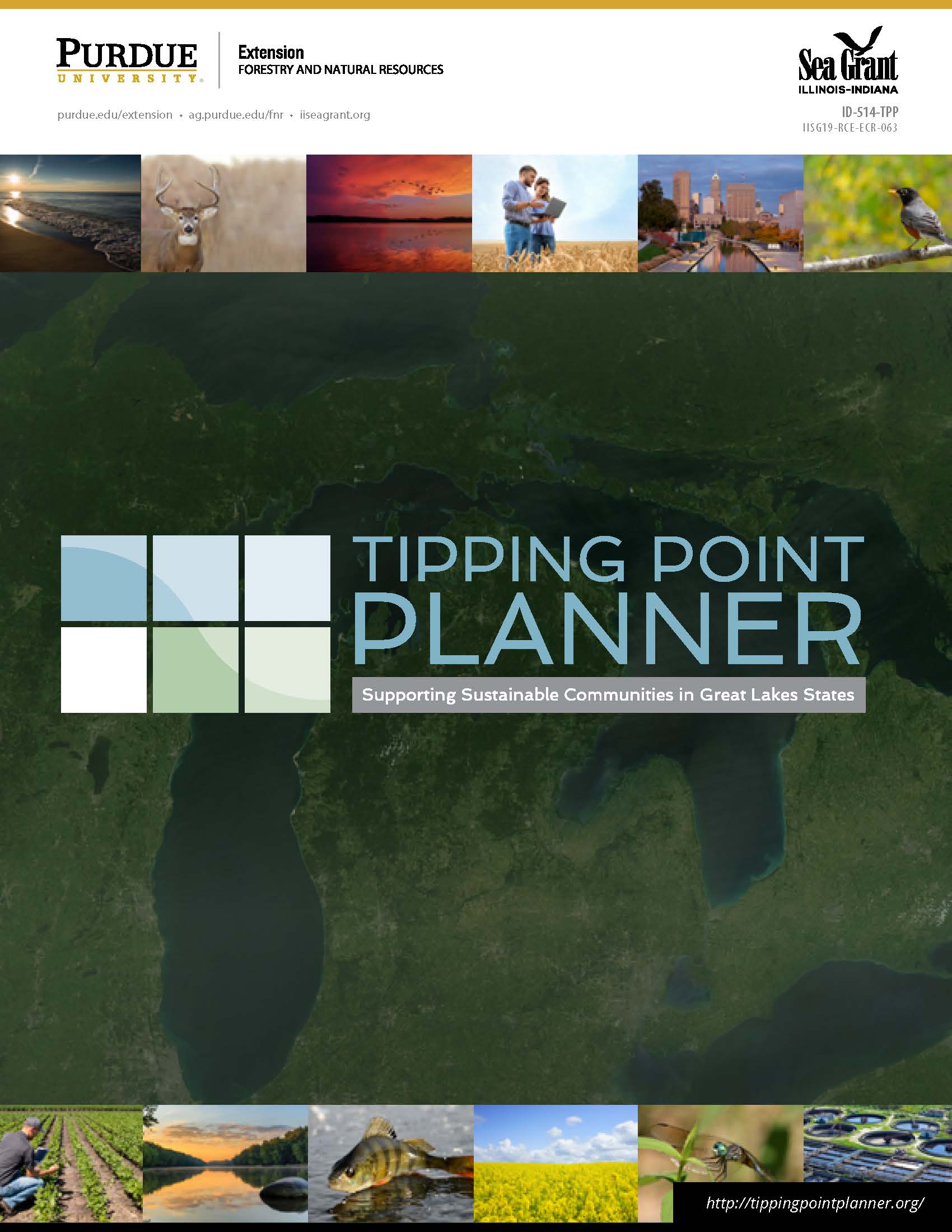Resources Publications and Products

Media Type:
Handbook | Manual | GuidePublication Number:
IISG19-RCE-ECR-063Pages:
30Description:
Through the decision support system, Tipping Point Planner (tippingpointplanner.org), communities in Great Lakes states can plan for a sustainable future by directly linking data to the local decision-making process. With help from trained facilitators, Tipping Point Planner enables professional as well as citizen participation in the land use planning and management process, including maintaining projects using a HUC 12 watershed scale. The program provides information, tools, and resources to help communities work with diverse stakeholders to:
- Examine past and predicted land-use changes
- Identify environmental threats
- Define natural resource assets in need of protection or restoration
- Explore land-use strategies and policies that enhance local values
- Gain the framework to define a community’s priorities through interactive community visioning exercises
The curriculum contains education materials and resources to support community planning for land use and natural resource management. The following curriculum chapters are available for download:
- Tipping Point Planner Introduction
- Planning Tools for Land Use and Natural Resource Management
- Tipping Point Planner Modules
To learn more about facilitated community action planning program offerings, please visit www.purdue.edu/fnr/extension/scep/programs/tipping-point-planner
To download this resource visit the Purdue Extension EdStore at https://edustore.purdue.edu/ID-514-TPP.html.
Recommended Citation
Salazar, Kara A, Lydia Utley, Daniel Walker, Ben Wegleitner. 2020. Tipping Point Planner. West Lafayette, IN: Purdue University Extension.
